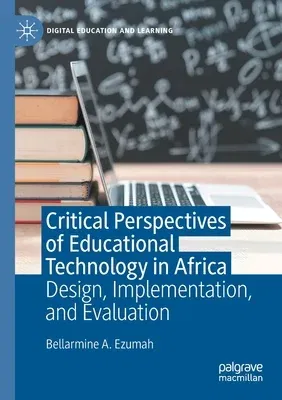Bellarmine A Ezumah
(Author)Critical Perspectives of Educational Technology in Africa: Design, Implementation, and Evaluation (2020)Paperback - 2020, 21 October 2021

Qty
1
Turbo
Ships in 2 - 3 days
In Stock
Free Delivery
Cash on Delivery
15 Days
Free Returns
Secure Checkout

Part of Series
Digital Education and Learning
Print Length
193 pages
Language
English
Publisher
Palgrave MacMillan
Date Published
21 Oct 2021
ISBN-10
3030537307
ISBN-13
9783030537302
Description
Product Details
Author:
Book Edition:
2020
Book Format:
Paperback
Country of Origin:
NL
Date Published:
21 October 2021
Dimensions:
21.01 x
14.81 x
1.14 cm
ISBN-10:
3030537307
ISBN-13:
9783030537302
Language:
English
Location:
Cham
Pages:
193
Publisher:
Weight:
258.55 gm